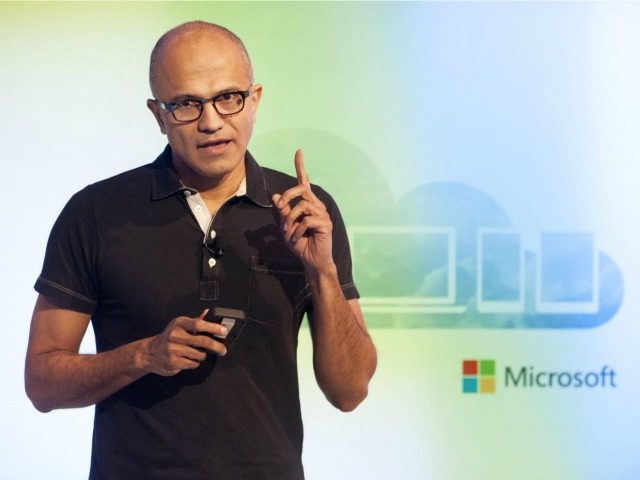Microsoft CEO Satya Nadella, the successor of Bill Gates and Steve Ballmer, laid out the power of economic nationalism and populism in an interview with Bloomberg Businessweek editor Megan Murphy.
“The reality we all have to confront is that globalization, using that term very broadly, has yielded a lot of advantages to the world—except it’s not been evenly spread,” Nadella, the man who has taken the reins of one of the most successful technology companies on the planet, said, adding:
It’s not been evenly spread even within a country that largely has done very well because of globalization, like the U.S. Unless and until we can deal with the inequities in our societies—in every country—it’s America First in the U.S. It’s going to be Britain First in the United Kingdom. It’s going to be China First in China. That’s what the world will expect. No one is going to get elected to any country’s presidency or prime ministership by not talking about their country first.
Of course, President Donald Trump defeated failed Democratic presidential nominee Hillary Rodham Clinton in an electoral college landslide in 2016 in the United States by focusing on putting America first. In the United Kingdom earlier that year, British citizens voted to leave the European Union. And nationalism has been on the rise worldwide from places as far as China and Japan to India to throughout Europe–and this Bloomberg Businessweek interview with Nadella is a sign that one of the smartest business minds in the world recognizes the future of this economic nationalist movement that is surging across the United States and around the world.
Nadella said, too, that rather than brushing aside these concerns from working class folks like most business and technology community leaders have tried to do, companies and corporate leaders need to recognize that economic nationalism and populism are not going away on their own or anytime soon.
“Business leaders in particular have to deal with this challenge,” Nadella said. “We can’t say, ‘Well, this nationalist movement of populism is a passing phase.’ We’ve got to deal with it as a phase that we’ve entered because the dividend of globalization hasn’t yielded more equitable growth for the world.”
Nadella laid out an example of how some parts of the United States have less technologically than some parts of Kenya.
“One example illustrates this challenge: I’d gone to Kenya in 2014 for the launch of Windows 10 to a place called Nanyuki, which was around a couple of hundred kilometers north of Nairobi,” Nadella said. He continued:
We were using TV white space—the spectrum between TV channels—to create broadband connectivity for this rural community. Then, that meant there were internet cafes. At one of them I met this one gentleman who was working on Microsoft technology. He was a college graduate who had come back to the community to earn a living. And I said, “What are you doing?” He said, “Oh, I’m solving some math problems.” And I said, “What are you solving math problems here for?” He says, “For kids in Spain.” Wow.
Then a year and a half goes by. I’m visiting one of our data centers in the middle of the country in the U.S. This is a place where we’re putting a lot of capital to power a lot of businesses around the country and around the world. And just 10 miles outside of that there’s no broadband connectivity. So that’s when it hit home that you don’t have to necessarily go to Kenya or India or elsewhere. There are inequities in our own backyard, and we have to do something about it.
Nadella laid out how Microsoft is now working on a project to bring broadband to rural areas here in the United States.
“We’re now working to create what we call the Rural Broadband Initiative, or Airband, working with the telecommunications companies here to create more connectivity solutions for the rural U.S. so it can fully participate,” Nadella said and added:
We know a lot of the veterans, for example, go back to where they come from in rural areas. Even the Veterans Administration’s telemedicine services require broadband connectivity, but they don’t have it. Solving some of our pressing challenges right here at home is going to be very important if we’re going to talk about a globalized world and all the surplus it can create.
Nadella, who was announced in 2014 as the third CEO in Microsoft’s history, succeeding Ballmer, who was the second after company founder Gates, also discussed in the interview his advice for success from Ballmer and Gates.
“The best advice I got from both Steve and Bill was to not try and somehow get into this mold of trying to fill their shoes,” Nadella said. “It’s impossible. I’d grown up in the company they built admiring what they’d done, but at the same time they gave me enough confidence, quite frankly, to be my own person. I look at what is it that I want to achieve. I’ve been blessed to have this platform at Microsoft. But frankly, the first job I had at Microsoft I felt was the best job. The second job I had at Microsoft was the best job.”

COMMENTS
Please let us know if you're having issues with commenting.